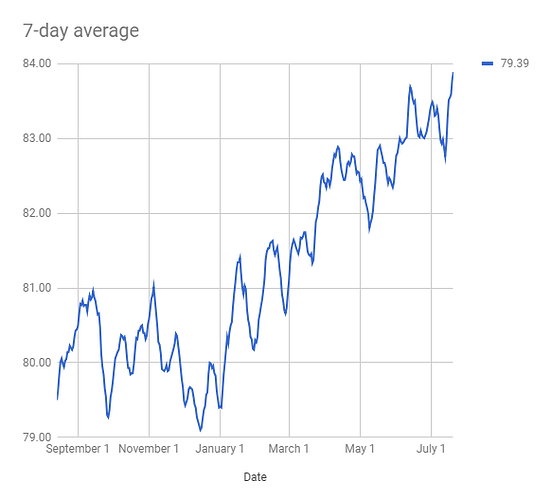I think it all boils down to the question on whether the mechanism behind fasting of, say < 4 days works fundamentally different from calorie restriction. And based on my own findings, I think the answer is yes. Fung’s two-compartment theory has appeal in that it explains why calorie restriction slows down the metabolism:
In my case, I need 3,000 kcals per day. If I restrict this to 2,500 over a period of 1 week and then start eating 3k again, I gain weight, all factors being equal. The reason based on Fung’s idea is that, because I am still eating (as opposed to fasting), my body is receiving insulin stimuli and cannot access the body fat quickly enough to offset the 500kcal deficit. Now, the ketogenic diet helps a bit, because you generally do not eat highly insulin-spiking food. Yet, it’s enough that a prolonged calorie restriction (particularly if you eat frequently and bump up the insulin many times throughout the day) end with a slower metabolism.
I generally restrict my fasting to 48h max. Far more usual for me are 18-24h windows, though. In these cases, I don’t receive any insulin spike. Since insulin is low, the storage can be accessed and my body doesn’t need to slow down the metabolism and limit some less vital functions. One good indicator for me is freezing. If I freeze, I know it’s time to end the fast, as the storage cannot be accessed for whatever reason.
Which brings me to confounding factors for insulin levels! In my experience, these can be many things apart from eating. I might fast for 24 hours and still get the freezing sensation despite not having eaten and low insulin levels… but people sometimes tend to forget factors such as:
- basal insulin excretion
- environmental stimuli (particularly smelling and looking at food)
- psychological stimuli (thinking of food/food planning)
- MTOR-based stimuli (even coffee without cream can affect this in some people)
- stress and hormonal status
- general health status
- … probably tons more I didn’t think of
So in general, I think Fung and Phinney are both right: fasting is a tool which works great and if you listen to yourself and don’t overdo it out of ambition (trust me I learned this the hard way!), it will work tremendously well and, if anything_ boosts my metabolism if:
- I keep my fasting to 48h max
- I remain receptive to the physical messages my organism sends me
- I don’t perceive ending a fast as a “failure”.
My body needs to have the final say in this! If you force it, you abuse the tool and it will have detrimental effects (e.g. slowing down you BMR).


